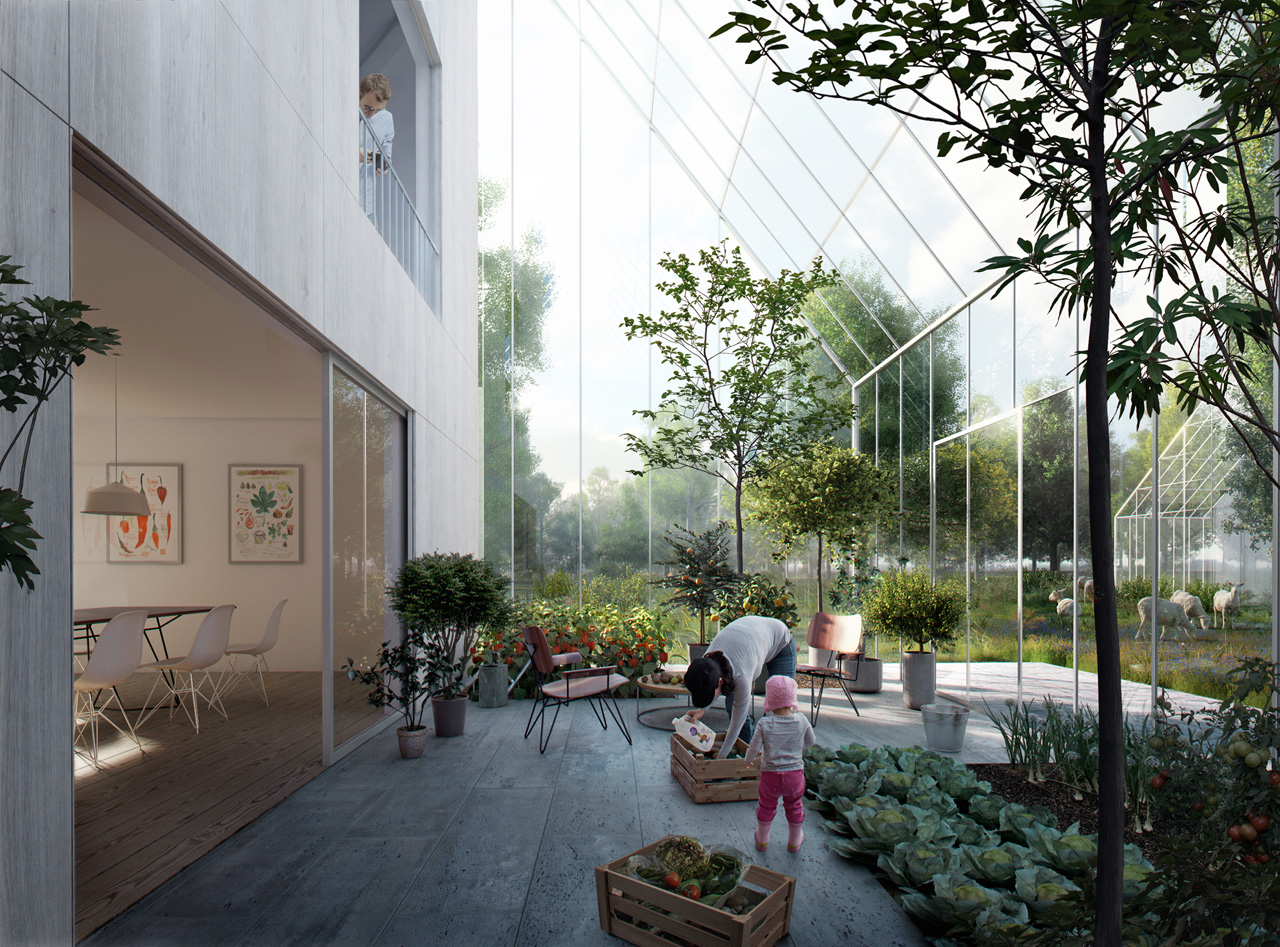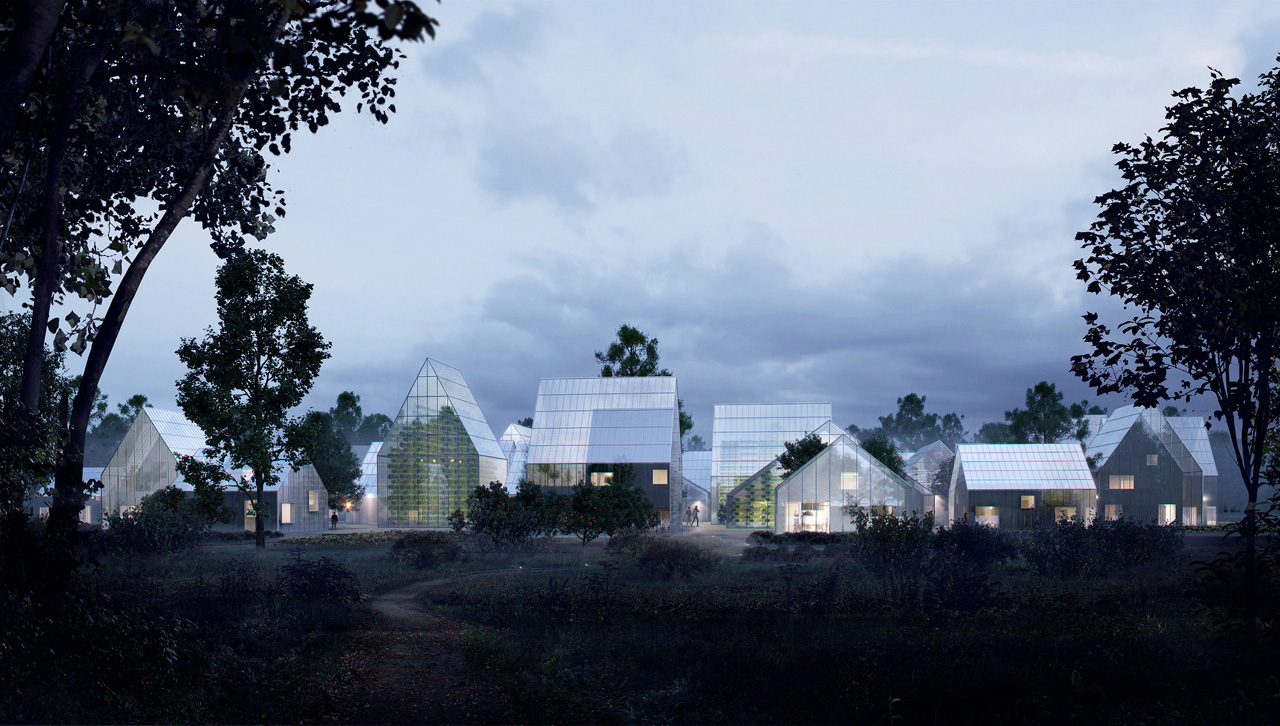One of the most fallaciously accepted beliefs in society today is that there isn’t enough space or resources available for everyone. The belief is that the planet is overpopulated and that humanity can’t harmonize with the environment symbiotically. As a result of this unquestioned belief, we’ve devolved into a parasitic relationship with the Earth mother. Thankfully the light of hope is still shining brightly, and the following article proves it.
The elite indoctrinates the masses into thinking humanity has no choice but to cannibalize the very world which gave it birth. But as many are now rediscovering, these are unfounded beliefs based on ignorance of our true relationship with the environment. The reality is there is plenty of land, water, and resources for all life, not just humanity. But the problem is, our civilization—care of despotic elites—is woefully inefficient.
The systems we use every day are taken for granted. We assume that there is no other way to live life, but is this really true? Planned obsolescence or the intentional promulgation of inefficient, inadequate and destructive technological and economic practices are pervasive within the fabric of human life. Cars are made to fall apart, homes are made to degrade and loose their value, foodstuffs are intentionally denatured to maintain the medical industry—and these are only a small handful of the things the population accepts without question.
Instead of developing efficient technologies that enhance sustainability and abundance, policies are created that actually hinder it. Consider that the average person consumes foodstuffs which produce untold waste and destruction for the environment, by way of artificial farming and distribution methods. And this is primarily because of centralization systems which are in contrast to how nature works.
For example, massive monoculture farms require a great deal of energy to maintain, pesticides to protect crops, and increased transportation and storage costs to distribute the produce properly. All of which makes the food more expensive, less nutritious, and of course, allows certain corporations to produce enormous profits— all of which is on the burden of the consumer.
In short, centralization of material goods (food, water, electricity and so on) is incredibly costly for the people and profitable for the elite. It allows companies to collect massive profits while the people and the environment suffer untold destruction and loss. Since the so-called Green Revolution during the 1930’s when society transitioned away from organic farming to massive artificial farms, disease and food costs have skyrocketed.
In comparison, 150 years ago, the reverse was the case. Small communities worked together to provide for each other, albeit not in a perfect way. Knowledge of farming and survival skills were standard educational foundations for nearly everyone in society, save those who choose to live in major cities. But today, the vast majority of people have no comprehension of how to sustain themselves. Humanity has become almost completely dependent on the very systems which destroy health and ruin the environment—and what’s worse—most people aren’t even aware of these costs.
The bottom line is ignorance is not bliss. In only a few short decades, the environment will be so completely ravaged by modern day society that civilization as we know it will come to an end. Future generations will look back at this time and wonder how their forefathers could have been so foolish and short sighted. Half of all species on Earth have gone extinct due to environmental destruction care of modern day practices.
Thankfully, the solution is simple. We must re-educate individuals so as to form decentralized sustainable communities. The primary reason why most people believe that the world is overpopulated and that we need enormous centralized systems, is a lack of knowledge, specifically in regard to how people lived in the past. Therefore, the first step is to dispel the illusion of dependence, scarcity, and humanity’s divorce from nature—which are central tenants to the false paradigm of technological progress we labor under now.
The following article is one such educational tool to re-awaken our fellows to the realities of abundant living. To be sure, humanity isn’t the problem, it’s what humanity chooses to do that needs to change, our practices, beliefs, and social programs. Once these things have been corrected, which can happen fairly quickly, restoration of the environment and human health can take place.
ReGen Villiage is a new sustainable community project near Amsterdam employing holistic systems of energy and food production, waste management, and overall design. The team is not using any hidden technology, such as free energy, for implementing sustainable methods. They use existing technology to develop the project, which is highly encouraging and is a central point to dispel the false belief in dependence and scarcity.
Even with existing advances—which are arguably far behind what is really possible—they plan to produce a completely sustainable community. Power, waste, and food will all be generated locally, reducing costs by orders of magnitude and potentially distributing surpluses into the surrounding areas.
Again, the team is using conventional methods, which are not even the most efficient, by far. This underscores what is possible when a holistic concept of decentralization is explored, and more to the point, when we begin to question the status quo.
Our world can be healed and restored back to the paradise it was meant to be, but only if we seek to dispel our own ignorance and take steps to embody change. Our children deserve to inherit a planet of safety and abundance, and this is well within our grasp today.
– Justin
by Adele Peters
This New Neighborhood Will Grow Its Own Food, Power Itself, And Handle Its Own Waste
ReGen Village, outside of Amsterdam, doesn’t need a grid or food systems. It’s a model for a future, fully closed-loop settlement.
If you live inside one of the houses in a new neighborhood being built in an Amsterdam suburb, your dining room might be next to an indoor vegetable garden. Outside, you’ll have another seasonal garden. And down the street, almost everything you eat will be grown in high-tech vertical farms.
The neighborhood will be the first ReGen Village, a new type of community designed to be fully self-sufficient, growing its own food, making its own energy, and handling its own waste in a closed loop.

Any household waste that can be composted will feed livestock or soldier flies. The soldier flies will feed fish, and fish waste will fertilize an aquaculture system that produces fruit and vegetables for the homes. Seasonal gardens will be fertilized by waste from the livestock.
By using the most advanced methods for growing food—a combination of aeroponics, aquaponics, permaculture, food forests, and high-yield organic farming—the neighborhood will grow many times more food than a traditional farm of the same size, with fewer resources. Aquaponics, for example, can produce 10 times as much produce on the same amount of land, with 90% less water.
“We anticipate literally tons of abundant organic food every year—from vegetables, fruit, nuts, legumes, fish, eggs, chicken, small animal dairy and protein—that can continually grow and yield in the vertical garden systems all year long as supplement to the seasonal gardens and farming adjacent,” says James Ehrlich, CEO of ReGen Villages, the California-based developer, which will also manage the neighborhood-slash-farm. The company partnered with Effekt, a Danish architecture firm, on the design.

The community will also produce its own energy, using a mixture of geothermal, solar, solar thermal, wind, and biomass. “We’re looking at some very interesting technologies for small-footprint biomass that can take surrounding farm waste and turn that into a consistent energy source in a way that can power these communities in northern Europe even in the dead of winter,” Ehrlich says. A smart grid will distribute power efficiently, sending it to a carport to charge shared electric cars as needed.
A biogas plant will turn any non-compostable household waste into power and water. A water storage system will collect rainwater and graywater and redistribute it to seasonal gardens and the aquaponic system.
It’s the first of a network of similar communities that ReGen plans to build around the world.

“We’re really looking at a global scale,” he says. “We are redefining residential real-estate development by creating these regenerative neighborhoods, looking at first these greenfield pieces of farmland where we can produce more organic food, more clean water, more clean energy, and mitigate more waste than if we just left that land to grow organic food or do permaculture there.”
The first 100-home village is on the outskirts of Almere, a quickly growing town 20 minutes by train from Amsterdam. Inside Almere, the company is also building a scaled-down version with 35 condo units. The company also has more projects planned in Sweden, Norway, Denmark, and Germany, but plans to expand everywhere.
“We’re really looking at starting off as the Tesla of eco-villages,” Ehrlich says. “That’s the idea. So we’re coming out as a little bit higher-end for Northern Europe.” Next, the company wants to adapt the system for arid climates such as the Middle East.

“We tackle the first two hardest climate areas,” he says. “Then from there we have global scale—rural India, sub-Saharan Africa, where we know that the population is going to increase and also be moving to the middle class. If everybody in India and Africa wants the same kind of suburbs that we’ve been building so far, the planet’s not going to make it.”
Ehrlich, who also works as an entrepreneur-in-residence at Stanford University and as a senior technologist there, was inspired by a 2013 UN report that argued for the creation of self-sufficient communities.
In Almere, the village is likely to grow about half of the food that the community eats—it won’t grow coffee or bananas, for example. It will also feed energy back to the local grid. But in some locations, the company believes that the neighborhood could be fully self-sufficient.
The community in Almere will break ground this summer and be completed in 2017.
All Images: Effekt
Related 13-Year-Old Invents Tesla Inspired Free Energy Device for Under $15
_________________________
Stillness in the Storm Editor’s note: Did you find a spelling error or grammar mistake? Do you think this article needs a correction or update? Or do you just have some feedback? Send us an email at [email protected]. Thank you for reading.

Leave a Reply